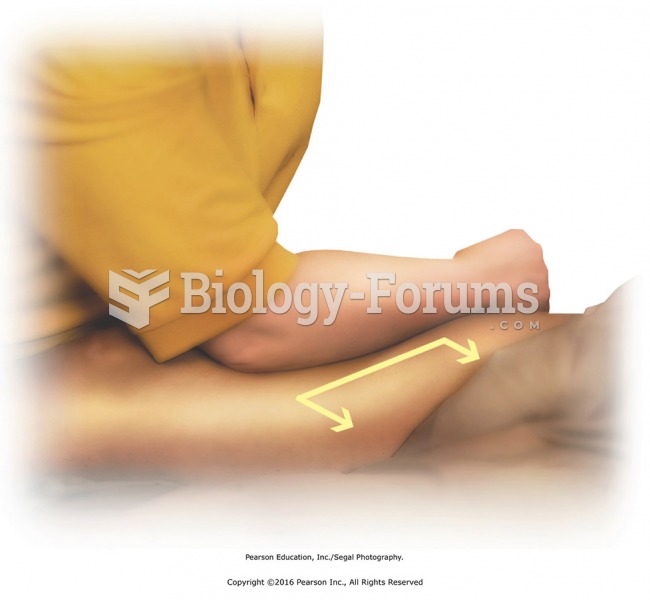|
|
|
There are immediate benefits of chiropractic adjustments that are visible via magnetic resonance imaging (MRI). It shows that spinal manipulation therapy is effective in decreasing pain and increasing the gaps between the vertebrae, reducing pressure that leads to pain.
Russia has the highest death rate from cardiovascular disease followed by the Ukraine, Romania, Hungary, and Poland.
To combat osteoporosis, changes in lifestyle and diet are recommended. At-risk patients should include 1,200 to 1,500 mg of calcium daily either via dietary means or with supplements.
The first oral chemotherapy drug for colon cancer was approved by FDA in 2001.
The human body's pharmacokinetics are quite varied. Our hair holds onto drugs longer than our urine, blood, or saliva. For example, alcohol can be detected in the hair for up to 90 days after it was consumed. The same is true for marijuana, cocaine, ecstasy, heroin, methamphetamine, and nicotine.
 Starting at the waist, apply circular two-handed petrissage over the entire right side. Keep hands ...
Starting at the waist, apply circular two-handed petrissage over the entire right side. Keep hands ...
 Deep friction around the hip joint using the knuckles. Use the knuckle of the middle finger to apply ...
Deep friction around the hip joint using the knuckles. Use the knuckle of the middle finger to apply ...





